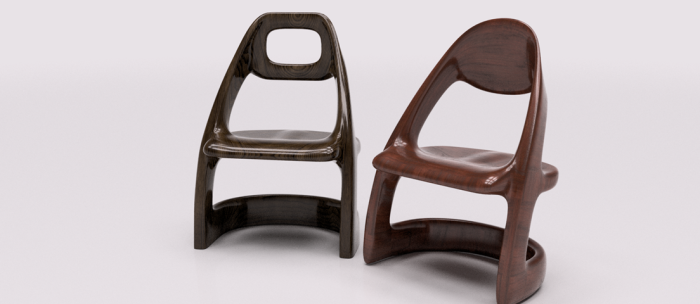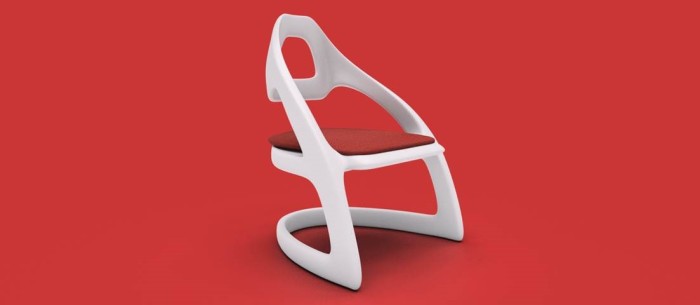Kim Kardashian and I have at least one thing in common, the pictures we post break the internet. Let’s take a step back and start from the beginning. Last week I posted an image on LinkedIn making the bold statement that I created the images below after approximately 13 minutes of design work in Fusion 360. In this same amount of time that I would have most likely still been setting up my sketches and workplanes if I was using a traditional parametric modeler. This led to some…spirited comments – both positive, negative, true and false. Let’s set the record straight my friends, I am not the first person to design or model a chair in 3D. It’s hard to believe, I know. Solid modeling, parametric surfacing, sub-divisional modeling and direct modeling were all on the table, and ultimately, can all give you an answer to the problem. The key takeaway however, was that the overall experience, speed, and freedom of being able to design inside Fusion 360 using the T-spline tools blew me away and left the “theoretical me” still trying to build it using parametric workflows (in any tool including Fusion 360) in the dust. TMZ has been denied for comment on how I created said design, this is my exclusive tell-all.
Here’s what I learned in some simple equations:
Parametric Surface Modeling + Time + User = Chair
T-spline Modeling + (Time / x) + User = Chair
Or
T-spline Modeling + Time + User = xChairs
I jokingly added that #itsscience, but it obviously is not, it’s mathematics! In all seriousness, I, like the many people that cheered or jeered me, have been in this industry long enough to know that a parametric modeler can do it. I certainly could have used any one of those workflows in Fusion 360’s unified modeling environment to create a chair, but the point was not that parametric modeling is inferior, or bad, it was that in the time it would take me to lay out my work planes, create guide sketches, etc., I was able (in 13 minutes) to create a really exciting shape that communicated my idea!

-13 minutes of work in Fusion 360-
Now, as my equations suggest, you could stop here, create a drawing, create a tool path, or a simulation or you could take advantage of the freedom of using Fusion 360 and iterate on that design. What if we added an open back rest? What would it look like in plastic? Hard edges? Can I make these stackable? (The next statement is not intended to insight a riot and please don’t serve me papers for slander.) Using parametric surface modeling in this example would have limited my outcome either because of the time it would take to create or that I wouldn’t have arrived at the 3rd, 5th, or 20th iteration.
In the immortal words of Abraham Lincoln, “don’t hate the player, hate the game”.
Maybe I was being a little bit facetious, I’ll admit it. After all, I am not that slow of a parametric modeler. The point I was trying to make still stands. The Fusion 360 mantra is “Design Differently,” and this is a perfect example of what we mean. Not only am I able to use the right tool (T-splines) but I can design with complete freedom using the right tool (solid, surface, direct, freeform) because Fusion 360 is not an awesome freeform modeler, it is not a parametric modeler, it is all of those thing in one product development platform! In general I love the spirit of the design community, the problem solvers, the passionate engineers and designers. Not to mention, I did get a standing offer from a Solidworks user to get some training if I am ever in Australia, since I inferred that it would take a lot longer in SWX…that made me smile!

https://gallery.autodesk.com/fusion360/projects/chair-26
Interested in learning how to use the sculpt tools in Fusion 360? Join our Deep Dive into Sculpting session at 1 pm EDT on Friday! Register here: https://attendee.gotowebinar.com/register/4194332668509693443.
Until next time…
-Jamie